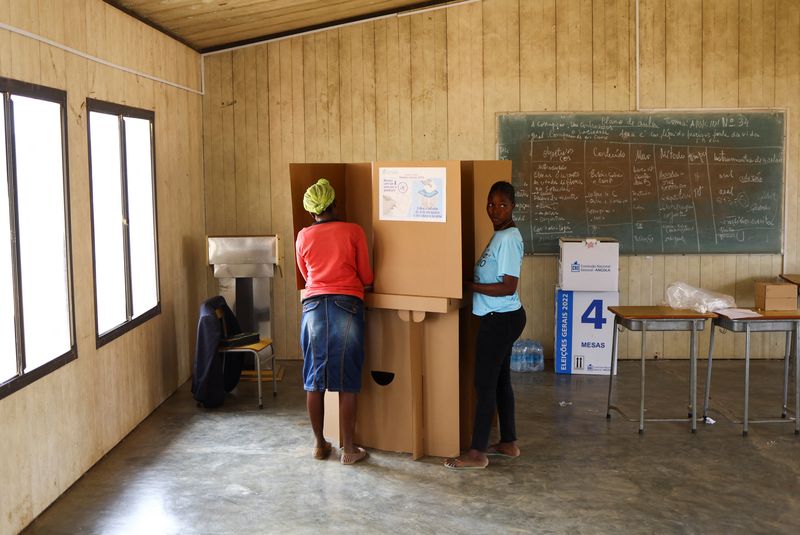Angolan election draws low voter turnout as ruling party on course to win
2022.08.26 15:18
2/2

FILE PHOTO – Locals vote during the general election in Cacuaco, a suburb of the capital, Luanda, Angola August 24, 2022. REUTERS/Siphiwe Sibeko
2/2
LUANDA (Reuters) – Fewer than half of Angola’s registered voters cast ballots in this week’s election that looks set to extend the MPLA’s almost five decades in power, electoral commission data showed on Friday.
Despite the MPLA’s expected success, Wednesday’s vote was Angola’s most closely fought yet with unprecedented gains for the opposition, who have complained about the counting process.
With more than 97% of the vote counted, the election commission said on Thursday the formerly Marxist People’s Movement for the Liberation of Angola, or MPLA, was ahead with a 51% majority and its longtime opponent, the National Union for the Total Independence of Angola, or UNITA, had 44.5%.
If that breakdown holds, MPLA President Joao Lourenço will secure a second five-year term, extending his party’s uninterrupted rule since independence from Portugal in 1975.
But UNITA, for the first time, will have deprived the MPLA of the two-thirds majority needed to pass major reforms and the ruling party will instead need the backing of other lawmakers.
Election data released on Friday also showed that turnout was just 45.65% of eligible voters.
UNITA has challenged provisional results, saying its initial count of 40% of polling stations showed it only a whisker behind the MPLA, saying it was a small enough margin for it to overhaul the MPLA once all ballots in the capital Luanda were counted..
UNITA posted an image of its leader, Costa Junior on its official Instagram account with the caption: “The President”.
The ruling party has not yet commented on the results, but it posted a video of Lourenço thanking Angolans on social media.
Analysts fear any dispute could ignite violence among a poor and frustrated youth who voted for Junior. The MPLA and UNITA, formerly both anti-colonial guerrilla groups, were on opposing sides of an on-off civil war that lasted 27 years from 1975.
As she watched the news on her phone, 47-year-old Antonia Neto, who works at a coffee shop at Luanda airport, said she was not happy with the results but said there was a glimpse of hope.
“There is a lot of discontentment,” she said. “Maybe things will be better in the next election.”
The MPLA’s Lourenço, 68, has pledged to extend reforms in his second term, including privatising poorly-run state assets. But many Angolans still live in poverty despite his promises of a fairer distribution of wealth in Africa’s second biggest oil producer.








